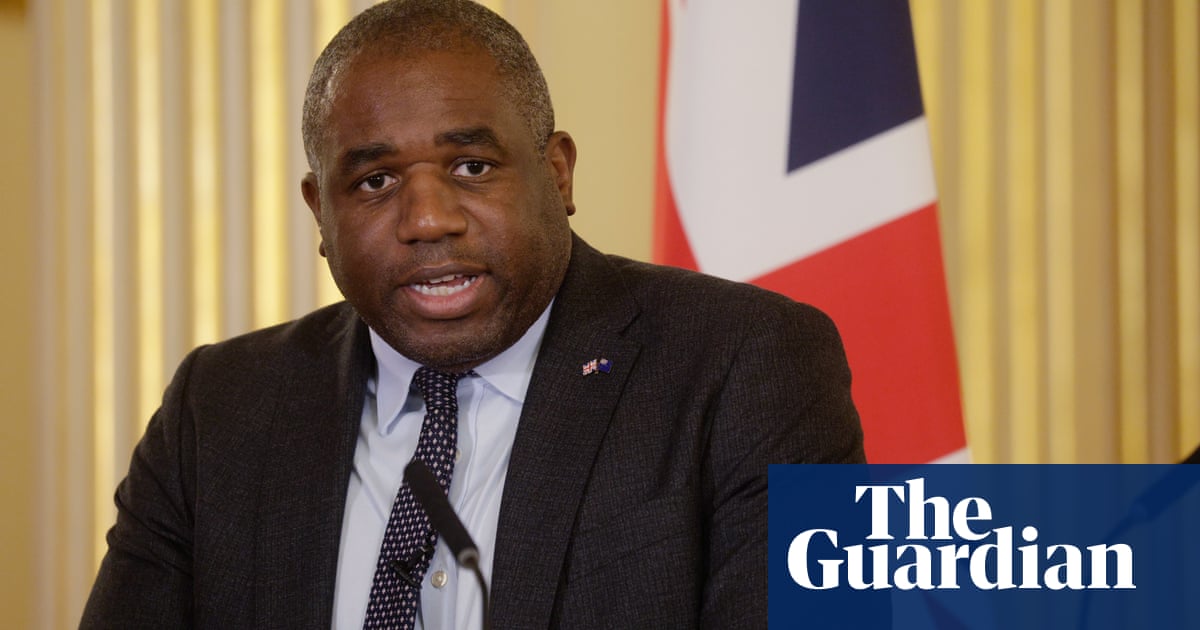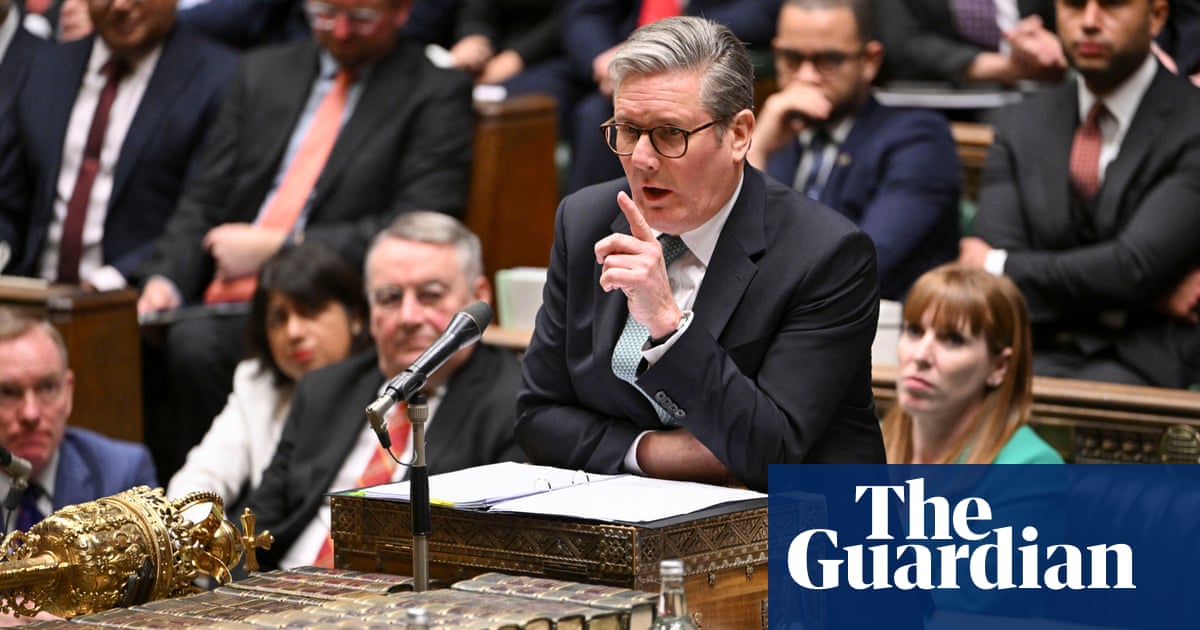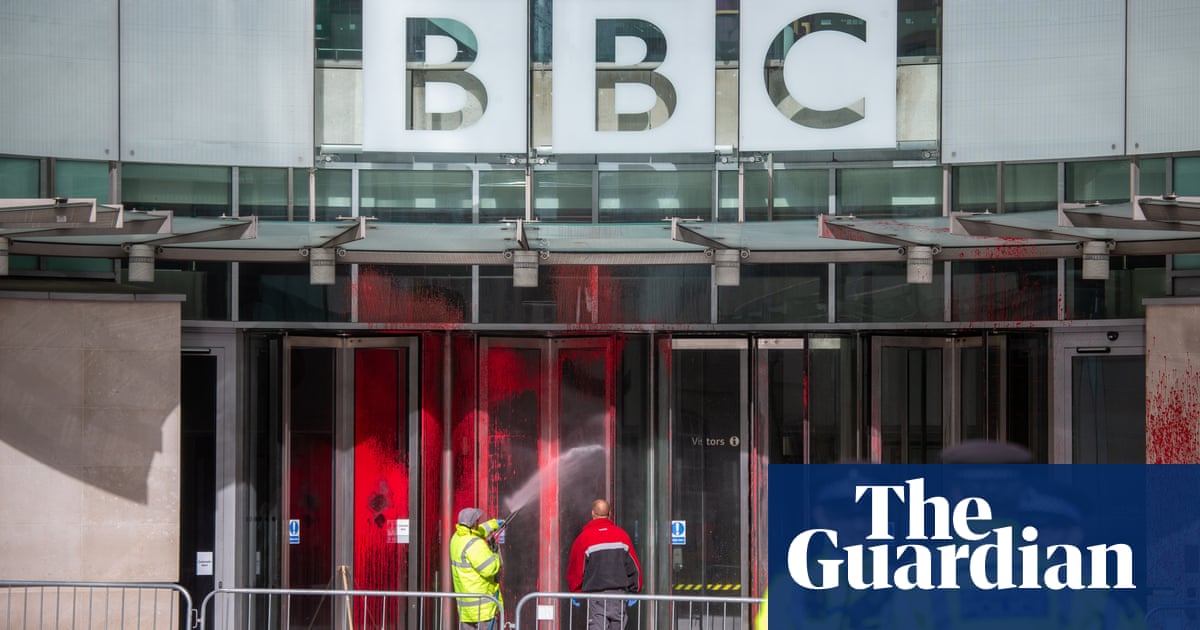Smoking is set to be banned outside schools and hospitals as part of a crackdown on one of the UK’s biggest killers and its most common cause of cancer.
But the government has dropped plans to outlaw smoking outside pubs and restaurants, prompting health campaigners to complain about “vested interests” covertly influencing policy.
The extension of the existing ban on smoking indoors to some outdoor settings is contained in the delayed tobacco and vapes bill, which will finally be laid before parliament on Tuesday.
It aims to make the UK the first country in the world to eradicate smoking by raising the age at which people can buy cigarettes by one year every year until no one can legally do so.
The legislation will also ban the advertising of vapes, and sponsorship by vaping companies, amid alarm over a rise in the number of children and young people taking up the habit. It will restrict the flavours, packaging and marketing of vapes, which critics say are used to lure under-18s into using them.
The hospitality trade welcomed the government’s decision to drop plans to prohibit smoking outside pubs, cafes and restaurants and said it would avoid pubs closing and jobs disappearing.
The Guardian disclosed on 25 October that the plan – which Keir Starmer had appeared to support when it first emerged in August – had run into opposition from inside Downing Street, with officials describing it as an “unserious” policy not backed by evidence.
“Had this restriction been introduced it would have led to many pubs shutting their doors and jobs being lost and so we welcome the government’s change of heart and proportionate approach,” said Emma McClarkin, the chief executive of the British Beer and Pub Association.

Kate Nicholls, the boss of UK Hospitality, said the mooted ban had caused “angst among hospitality businesses”, which worried that it would increase costs and drive away customers.
But Caroline Cerny, the deputy chief executive of Action on Smoking and Health, voiced frustration that the bill had been watered down after behind-the-scenes lobbying by commercial interests.
Health organisations will keep pushing ministers, and also the devolved administrations, to forbid smoking outside hospitality venues by stressing the harm secondhand smoke can do.
“We welcome the government taking overarching powers to limit exposure to secondhand smoke outdoors and that they intend to move quickly in areas with the most consensus,” she said.
“Given that people working [in] and visiting hospitality settings are exposed to secondhand smoke, we’re sure both the government and the hospitality sector will want to see smoking restrictions applied here too.
“This is the start of an important ‘national debate’ which should be shaped out in the open by health evidence and public opinion, not behind closed doors by industry with vested interests. We will continue to push for ambitious legislation that will protect as many people as possible.”
The bill will give ministers the power to ban smoking in certain outdoor areas, subject to a public consultation, with places where children and vulnerable people gather the main focus. Playgrounds and locations outside schools and hospitals are likely to be the first settings in which it will be enforced.
New York City and Melbourne already operate smoke-free outdoor settings. The authorities in Greater Manchester have previously shown interest in banning lighting up in key locations in the city centre, such as Piccadilly Gardens, St Peter’s Square and near the town hall.
Prof Chris Whitty, the chief medical officer for England, who is thought to have argued for the widest possible outdoor smoking ban, said that the UK finally becoming “smoke-free” would lead to fewer stillbirths and cases of asthma in children, as well as reductions in cancer, strokes, heart disease and dementia.
“Secondhand smoke causes harm, including to children, pregnant women and medically vulnerable people, so reducing this is important. If vulnerable people can smell smoke, they are inhaling it,” he said.
Wes Streeting, the health and social care secretary, will appear on television and radio programmes on Tuesday morning to explain the biggest assault on smoking since the indoor ban came into force in England, Wales and Northern Ireland in 2007.
“This government is taking bold action to create the first smoke-free generation, clamp down on kids getting hooked on nicotine through vapes, and protect children and vulnerable people from the harms of secondary smoke,” he said.

.png) 2 months ago
19
2 months ago
19













































